Today’s Current Affairs: 26th March 2024 for UPSC IAS exams, State PSC exams, SSC CGL, State SSC, RRB, Railways, Banking Exam & IBPS, etc
Table of Contents
Bima Sugam : An Online Insurance Marketplace

The Insurance Regulatory and Development Authority of India (IRDAI) has approved the establishment of Bima Sugam, an online insurance marketplace, aimed at simplifying the process of buying, selling, and servicing insurance policies, as well as settling claims.
- Bima Sugam functions as an e-commerce platform where insurance companies can offer their products, providing customers with an end-to-end digital journey.
- It eliminates paperwork by offering policies in electronic format and allows customers to access all their policies – life, health, and non-life insurance – in one application or window.
- Bima Sugam is expected to make insurance policies more affordable by reducing commissions paid to intermediaries, potentially leading to lower premiums for policyholders.
- Additionally, it offers a unified platform for policy issuance, claim settlement, and service requests, contributing to transparency and collaboration in the insurance sector.
IRDAI:
- IRDAI (HQ: Hyderabad; est 1999), safeguards insurance customers’ interests as a statutory body under the IRDA Act 1999.
- It operates under the Ministry of Finance, overseeing and developing the insurance industry.
- Its powers and functions are defined by the IRDAI Act, 1999 and the Insurance Act, 1938
Unified Payments Interface As a Third-Party Application Provider:

The National Payments Corporation of India has recently granted approval to Paytm-owner One97 Communications Ltd to participate in Unified Payments Interface (UPI) as a Third-Party Application Provider (TPAP) under the multi-bank model.
- Axis Bank, HDFC Bank, State Bank of India, and YES Bank will act as Payment System Provider (PSP) banks to Paytm.
- Previously, Paytm operated through its own payments bank licence. However, due to regulatory non-compliance, RBI imposed several restrictions on Paytm Payments Bank.
- TPAPs are entities facilitating UPI payments by connecting customers and merchants through applications or platforms.
- They serve as intermediaries, ensuring seamless transactions and play a vital role in the UPI ecosystem, handling millions of transactions daily.
- NPCI, formed as a collaboration between the RBI and Indian Banks’ Association (IBA) under the Payment and Settlement Systems Act, 2007 operates as a not-for-profit entity to enhance India’s payment and settlement infrastructure.
- It aims to provide both physical and electronic payment solutions to the banking sector, leveraging technology to drive operational efficiency and expand payment system accessibility.
Financing Agrochemical Reduction And Management Programme:
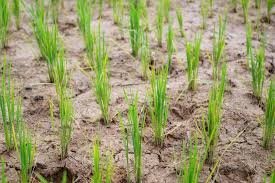
Seven countries – Ecuador, India, Kenya, Laos, Philippines, Uruguay, and Vietnam – have initiated a program called the Financing Agrochemical Reduction and Management Programme (FARM) to address pollution from pesticides and plastics in agriculture.
- This initiative aims to combat the release of toxic persistent organic pollutants (POPs) into the environment caused by the use of harmful chemicals in farming
- FARM, led by the UN Environment Programme (UNEP) with support from the Global Environment Facility (GEF), intends to shift financial incentives towards farmers to adopt low- and non-chemical alternatives, promoting sustainable practices.
- By phasing out hazardous pesticides and Agri-plastics and encouraging better management standards, the program aims to prevent the release of over 51,000 tons of hazardous pesticides and 20,000 tons of plastic waste, while also reducing carbon dioxide emissions and protecting over 3 million hectares of land.
Intergovernmental Negotiations On Security Council Reform:

Participating in the Intergovernmental Negotiations on Security Council Reform, India has presented a detailed model on behalf of the G4 nations for United Nations Security Council Reform.
- The model includes new permanent members elected democratically by the UN General Assembly and shows flexibility on the veto issue.
- The G4 (Brazil, Germany, India and Japan) was created in 2004 and has been promoting Security Council reform.
- The model highlights the “glaring under-representation and un-representation” of key regions in the Council’s current composition, which hampers its legitimacy and effectiveness.
- The G4 model advocates for increasing the Security Council’s membership from the current 15 to 25-26 members.
- This expansion includes adding 6 permanent and 4 or 5 non-permanent members.
- Two new permanent members each are proposed from African states and Asia Pacific states, one from Latin American and Caribbean states, and one from Western European and Other states.
- In a departure from the existing framework where only the five permanent members hold veto powers, the G4 model offers flexibility on the veto issue.
- New permanent members would refrain from exercising the veto until a decision on the matter is taken during a review process, demonstrating a willingness to engage in constructive negotiations.
- The proposal emphasizes that the decision on which member states will occupy the new permanent seats will be made through a democratic and inclusive election by the UN General Assembly.
Global E-waste Monitor 2024:
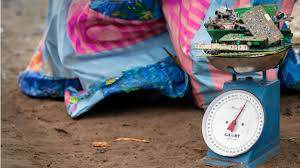
The United Nations Institute for Training and Research (UNITAR) has released the Global E-waste Monitor 2024, which states that the world’s generation of electronic waste is rising five times faster than documented e-waste recycling.
Highlights of the Global E-waste Monitor 2024 Report:
- There is a significant increase in global e-waste generation, rising from 34 billion (bn) kg in 2010 to 62 bn kg in 2022.
- This trend is projected to continue, reaching 82 bn kg by 2030.
- Of this 62 bn kg, only 13.8 bn kg is documented as ‘formally collected and recycled in an environmentally sound manner’.
- 62 bn kg of e-waste includes 31 bn kg of metals, 17 bn kg of plastics and 14 bn kg of other materials (minerals, glass, composite materials, etc.)
- Factors driving the increase in e-waste generation include technological progress, higher consumption rates, limited repair options, short product life cycles, growing electronification, and inadequate e-waste management infrastructure.
- A significant portion of e-waste (both in high- and upper-middle-income countries as well as low- and lower-middle-income countries) is handled by the informal sector due to inadequate formal e-waste management infrastructure.
- The improper management of e-waste, including informal recycling practices, leads to the release of hazardous substances such as mercury and plastics containing brominated flame retardants into the environment, posing direct and severe impacts on both the environment and public health.
- A brominated flame retardant is a chemical compound containing bromine that is added to materials to inhibit or suppress the ignition and spread of fires.
- They work by interfering with the combustion process, reducing the flammability of materials and slowing down the rate at which flames spread.
- A whopping 58,000 kg of mercury and 45 million kg of plastics containing brominated flame retardants are released into the environment every year.
- Europe has the highest rate of documented formal collection and recycling of e-waste (42.8%), while Africa struggles with low recycling rates (<1%) despite generating lower amounts of e-waste.
- Asia, including India, generates a significant portion of global e-waste but has made limited advances in e-waste management.
- Countries in Asia generate almost half of the world’s e-waste (30 bn kg) but relatively few of them have enacted legislation or established clear e-waste collection targets.
- Europe (17.6 kg), Oceania (16.1 kg) and the Americas (14.1 kg) generated the highest amount of e-waste per capita in 2022.
- They also had the highest documented per capita collection and recycling rates (7.53 kg per capita in Europe, 6.66 kg per capita in Oceania and 4.2 kg per capita in the Americas).
- This was because their collection and recycling infrastructure was the most advanced.
- Collection and recycling rates are highest for heavier and bulkier equipment like temperature exchange equipment and screens and monitors.
- Thus, while toys, microwave ovens, vacuum cleaners and e-cigarettes comprise a third (20 bn kg) of the world’s e-waste, recycling rates for them are very low 12% globally.
- Small IT and telecommunication equipment — laptops, mobile phones, GPS devices and routers — constitute 5 bn kg of e-waste.
- But just 22% of this is documented as formally collected and recycled.
- 81 countries have adopted e-waste policy, legislation or regulation.
- Sixty-seven countries have legal provisions on Extended Producer Responsibility (EPR) for e-waste.
- Another 46 have provisions on e-waste collection rate targets. Finally, 36 countries have provisions on e-waste recycling rate targets.
e-Waste:
- Electronic waste (e-waste), is a generic term used to describe all types of old, end-of-life or discarded electrical and electronic equipment, such as household appliances, office information and communications equipment etc.
Vote-from-Home : ECI
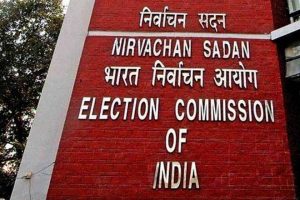
The Election Commission of India (ECI) has, for the first time in the history of the Lok Sabha elections, extended its ‘vote-from-home’ facility to Persons with Disabilities (PwD) and senior citizens aged 85 and above.
Eligiblility:
- People aged 85 and above
- Persons with Disabilities: The disability shall not be less than 40% of the prescribed handicap and certified by the certifying authority.
- Media persons covering ‘polling day activities’: Carrying authorisation letters from the Election Commission
Workers from essential services: Services such as metros, railways and health care - Service voters: Personnel of the armed forces posted away from their hometowns, Central Armed Police Forces personnel deployed away from home and those on poll duty.
- Key to the process is Form 12D, which is a letter informing the Assistant Returning Officer (ARO) that the person may not be in a position to go to the polling station to vote.
- The form can be downloaded online from the ECI website or collected from the office of the representative district officer of a parliamentary constituency.
- The form has to be filled and submitted within five days of notification of the polling date. Once filed, two polling officials, accompanied by a videographer and a security person, will visit the elector’s home and oversee the postal ballot voting process.
- The voter will receive an intimation about the date and approximate time of visit via SMS or through post.
- The home voting option will be attempted twice.
Project ANAGRANINF:
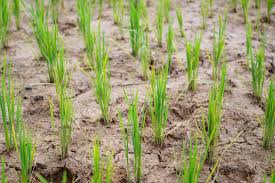
The Technology Development Board (TDB) has penned an agreement with two companies and has sanctioned a grant of ₹75 Lakhs towards the project “ANAGRANINF for the development of a Novel Class of Antibiotics Against Gram-Negative Bacterial-Infections.
- The primary objective of this project is to develop a novel lead compound, particularly an antibiotic, adept at inhibiting the FabI enzyme and combatting critical gram-negative pathogens.
- Gram-negative bacteria have a much thinner peptidoglycan cell wall, but in addition they have an outer membrane containing lipopolysaccharides surrounding the cell and are consequently termed diderms.
- These bacteria have built-in abilities to find new ways to be resistant and can pass along genetic materials that allow other bacteria to become drug-resistant as well.
- It causes infections including pneumonia, bloodstream infections, wound or surgical site infections, and meningitis in healthcare settings.
- They are resistant to multiple drugs and are increasingly resistant to most available antibiotics.
World Tuberculosis (TB) Day 2024:
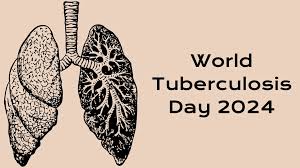
World Tuberculosis (TB) Day is celebrated on March 24 annually to spread awareness around the deadly disease.
- World Tuberculosis (TB) Day is celebrated to raise awareness around the disease, increase efforts to eradicate the disease, and mobilise support for those affected by TB.
- March 24, 1882 is considered a significant date in the battle against tuberculosis as it is on this day that Dr Robert Koch discovered the bacteria that causes TB.
- It was not before the year 1982, on the centenary of Dr. Koch’s discovery that the International Union Against Tuberculosis and Lung Disease (IUATLD) proposed observing March 24 as World TB Day to raise awareness about TB and its global impact.
- The first World TB Day was officially observed in 1983, and since then, it has become an annual event.
- Theme of World Tuberculosis day 2024: “Yes! We can end TB”.
Arsenic : Study
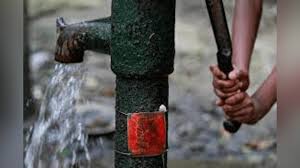
A new study underlines the risk of using water contaminated with arsenic to cook rice, a staple food serving more than half the world’s population.
- Arsenic is a naturally occurring, semimetallic element widely distributed in the Earth’s crust.
- It is widely distributed throughout the environment in the air, water and land.
- It is a chemical element in the nitrogen group(Group 15 of the periodic table), existing in both gray and yellow crystalline forms.
- It is highly toxic in its inorganic form.
- People are exposed to elevated levels of inorganic arsenic through drinking contaminated water, using contaminated water in food preparation and irrigation of food crops, industrial processes, eating contaminated food and smoking tobacco.
- Long-term exposure to inorganic arsenic, mainly through drinking-water and food, can lead to chronic arsenic poisoning. Skin lesions and skin cancer are the most characteristic effects.
- In India, the states of West Bengal, Jharkhand, Bihar, Uttar Pradesh, Assam, Manipur and Chhattisgarh are reported to be most affected by arsenic contamination of groundwater above the permissible level.
Electoral Trusts:
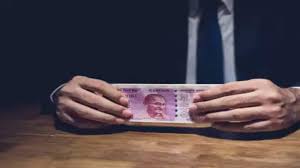
The recently released list of corporate contributors to political parties under electoral bonds is under examination, although many of these have been frequent donors, paying large sums to political parties through electoral trusts.
- Electoral Trusts are trusts set up by companies with the objective to distribute the contributions received from other companies and individuals to political parties.
- The companies which are registered under section 25 of the Companies Act, 1956, are only eligible to make an application for approval as an electoral trust.
- The names of electoral trusts, currently, do not indicate the name of the company/group of companies which set up the trusts.
- For administrative expenses, the electoral trusts are permitted to set aside a maximum of 5 percent of the total funds collected during a financial year.
- The remaining 95 percent of total income of the trusts, including any surplus from the previous financial year, is required to be distributed to eligible political parties.
Right Whales : Study
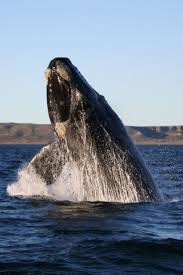
A recent study finds that female right whales may never breed after entanglement in fishing gear.
- Right Whales ,family Balaenidae is any of four species of stout-bodied whales having an enormous head measuring one-quarter to one-third their total body length.
- While they differ genetically, and in conservation status, they do not differ significantly in their external appearance.
- These whales were hunted for their oil and their strong, elastic baleen.
- Because of the considerable economic value of these products, this cetacean gained its name because it was the “right whale” to take.
- When feeding, these whales swim slowly and use baleen to eat schools of small, shrimp-like crustaceans, called zooplankton.
- Right whales were nearly exterminated by uncontrolled hunting, and the International Union for Conservation of Nature and Natural Resources (IUCN) considers two of the four species as endangered. They have been completely protected by international agreement since 1946.
- Whereas at least 10,000 bowheads and approximately 13,000 southern right whales remain, northern right whales are rare, with North Atlantic right whales numbering only in the hundreds and North Pacific right whales numbering only slightly more.
- The IUCN classifies the North Pacific right whale as an endangered species and the North Atlantic right whale as a critically endangered species.




